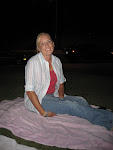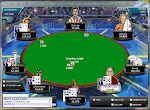In various conversations with poker buddies as well as emails that I have received recently, the subject of poker books has come up quite frequently. Several people have asked me if I read these books and which ones I recommend. The answer is that I absolutely do read poker related material: books, articles, other blogs and forums. I think that this type of ongoing education is critical to the success of anyone even remotely serious about the game. In light of the recent questions and comments, Happy Donkey decided to put together a list of some of our favorite poker related books. I am going to post his contribution in two separate blog entries. Here is Part 1 from Happy Donkey:
"If you are not aware that poker is a rapidly evolving game, then you are not paying enough attention and will likely be outplayed tomorrow by players who are less skillful than you are today. This is especially true when it comes to No Limit Texas Hold ‘Em (NLH), currently the most popular form of the game. That said, anyone who believes that they are taking poker seriously, is kidding themselves if they are not reading about it regularly. There is just so much information being generated on a daily basis, that if you ignore it, you will get left behind. If you are trying to improve your game, you need to develop a system for assimilating this information. One of the easiest ways to start out is to visit and participate in one of the myriad online forums. Not only is this a great interactive way to learn the new strategies and techniques that are being tested and developed, but it’s clearly the most current information available. Post a question, hand history, or theory on a forum and you could have multiple replies within hours. There are a lot of forums out there to choose from: Every online poker site has a forum, as does Card Player magazine’s website. (http://forums.cardplayer.com/forums/ ) Two other good forums are the 2+2 forum http://forumserver.twoplustwo.com/ and http://www.cardschat.com/ .
While getting your information online is a great tactical way to work on certain elements of your game, there are many good books out there to help you develop your major strategic concepts. A good book will have been organized to provide you with a systematic method to building your strategy from the ground up. This structure is especially important when new to the game. (Realize that when expanding your game from live cash (ring) games into tournament play or vice versa, you should look at it as being new to the game.) {Tamara: I can attest to the truth of this statement. As you all know, I have been moving from being almost exclusively a cash player to participating in MTTs online, and I can tell you that it is like trying to learn how to swim all over again. MTTs are COMPLETELY different from cash games and the first thing I did was to start reading as much good stuff as I could on tournament play.} As the list of books that have been written rapidly grows, it might be hard to determine which books you should read. After all, reading these books will require a reasonable time commitment, so you want to be sure to select the best books to give you the best return on your time. With that in mind, we have compiled a list of essential books that we think you shouldn't miss:
1. The Full Tilt Poker Strategy Guide, Tournament Edition by Michael Craig
Whether you are just starting out playing tournaments, or you consider yourself a tournament specialist, this is the most important book to read. Michael Craig has compiled a book with each section written by some of the best players on the circuit today, and the information they convey is critical to playing competitively in tournaments. It is no exaggeration to say that not understanding the information in this book and playing tournaments anyway is like being at the controls of an airplane without having a pilot’s license. {And Happy Donkey would know about that pilot thing!} Chris Ferguson’s explanations, especially with regard to post-flop play, are perhaps the most valuable contribution to the book. Andy Bloch’s section on pre-flop play and how to value starting hands is a crucial concept that every tournament player needs to have down. Also, do not deceive yourself into skipping the chapters that don’t have to do with NLH, because NLH is, after all, poker, and the information in the other chapters will help you understand important concepts that pertain to all forms of poker. {Omaha players will tell you that their Hold 'Em game has often benefited greatly by the application of pot building concepts that they learned from PLO. Other poker games can often help you see your Hold 'Em game in a new light. Plus if you want to be a well rounded player, you should really know how to proficiently play all poker games.} Phil Gordon says in the forward that people ask them why they are giving away their secrets, why they are writing a playbook for their opponents to beat them. He replies that they have made enough money, it is now about being the best and seeking out the best opponents and beating them. {For the record, I don't buy this philanthropic crap. I think that they wrote the book to gain exposure, which boosts their sponsorship appeal, which is where the big money is in poker today. But if it gives you warm fuzzies to think that Phil Gordon really wants you to be the best that you can be, then by all means go ahead and think that.} After reading this book it is clear that they are truly attempting to educate the poker world to elevate the level of play across the board. If you are to read one book about poker, this is the book. {I completely agree with that statement. The Full Tilt Guide is hands down the best poker book I have ever read. In fact, I should really re-read it. In fact, I think I'll go do that now.}"
I will post the rest of the list in the next blog entry.
Until next time...go read the book...what are you waiting for? Go now!
Monday, January 21, 2008
Subscribe to:
Post Comments (Atom)



No comments:
Post a Comment